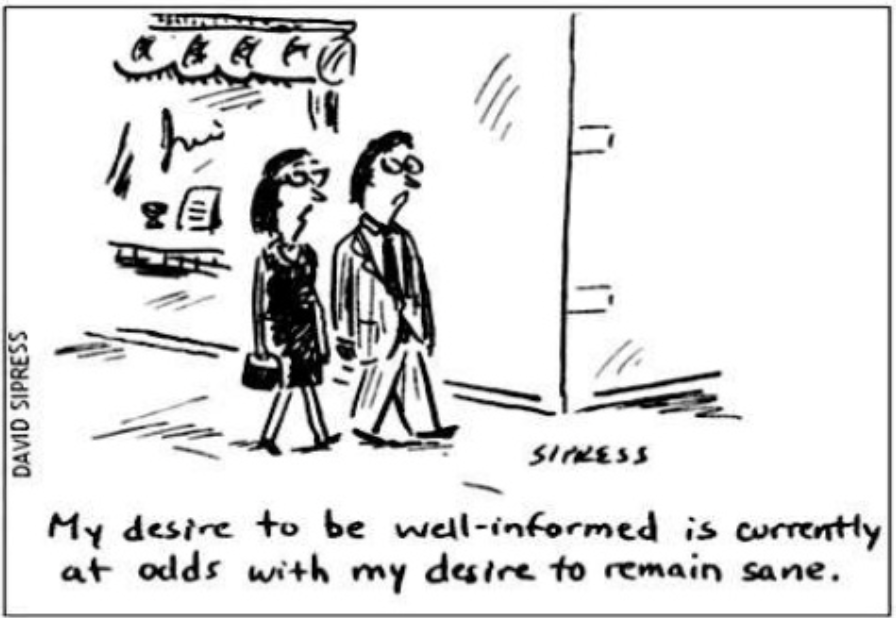
[I took the cartoon above from Libby Buckfelder's Slide Share explaining cognitive dissonance theory.]
You've entered yet another week in which my idea comes from what I've heard on Peloton, in this case, from two instructors. Ross Rayburn talked (in his yoga flow class on April 9, 2021) about the importance of grounding down and lifting up, and Jess Sims frequently reminds us that we are "a work in progress and a masterpiece at the same damn time." Their ideas aren't exactly the same, but I hope you'll see some connections. Rayburn is helping his athletes stretch themselves, literally, while Sims gives us mental and emotional permission to forgive and celebrate our bodies.
Let's consider them separately. If I pull at an item that doesn't have any give, it won't elongate but move or break, depending on how or if it's attached to its current location. When Rayburn instructs me to think about rooting my feet down into the earth as I reach my hands to the sky, he's explaining how to stretch my muscles to allow them to strengthen and grow.
Sims' advice, on the other hand, helps me feel good about what my body can do, even though it can't do everything. If I focus only on what I'm not good at yet, I might lose hope. If I focus only on what I'm already great at, I will lose motivation to work. To become a better person, I have to think about both parts, which skills and traits I have and which I lack.
Of course, both teachers help me recognize and embrace cognitive dissonance. Rayburn and Sims encourage physical, mental, and emotional growth by showing that improvement is important not because it's easy but because it's hard. I think about some of the other cognitive dissonance I'm coming to recognize in my life; many of these are obviously more serious than others:
- I want to stay fit and binge candy.
- I want to raise independent daughters and to control their environments to make life easy for them.
- I want to be resilient and avoid unpleasant situations.
- I love my job and long for retirement.
- I want to have written a published book and I stink at revision.
- I am a good person and a beneficiary of structural racism/white supremacy.
I can reconcile these beliefs and desires only by being okay with cognitive dissonance. Just as Ross Rayburn tells me that I need to stretch my muscles to allow them to be loose enough to do the work to grow stronger (or at my age, not to deteriorate), I need to stretch my mind to give it room to hold contrasting beliefs. And just as Jess Sims has me feel good about where I am and where I'm going, so too can I know that seeing a better future ahead and working hard to get there doesn't entail scorning the present.
What cognitive dissonance have you learned to accept? What won't you accept? Please share your thoughts in the comments.
When people see a juggler, many of them shout out, “I’m not coordinated enough to do that!” That’s like saying you’re not flexible enough to stretch: Learning to juggle improves your coordination. As you learn, you become more coordinated, but then chances are you may see a harder trick you’d like to learn. And you might not be coordinated enough to do it … yet!
Sure, juggling is a celebration of coordination. But it’s also a practice to develop coordination and a constant reminder of how much further we could all choose to go.
PS, is “juggling” a metaphor, or am I talking about throwing and catching?
Yes.
Love this.
Am I talking about the content of the comment or its author?
Yes.
Go gal!
Your essay was the best discussion of cognitive dissonance and I’ve ever read.
I especially enjoyed your slant on its positive effects.
Thanks for It.
Lobster girl’s dad
Thanks so much. Love, Lohbstah Gahl
“Moderation?” Me???
I’m confused. I don’t see “moderation” anywhere on my screen.